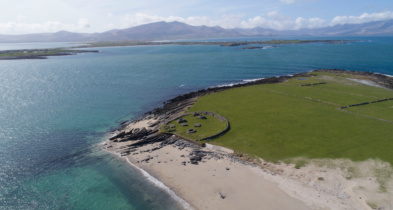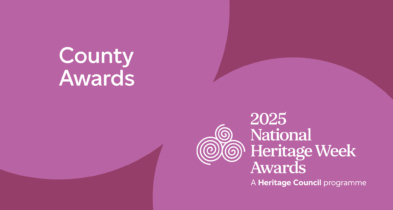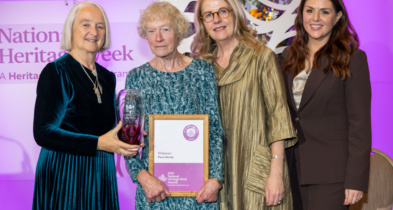
Meet the Living Heritage Enthusiasts: Johnny Sheils; Spinning Wheel-Maker

Donegal-based spinning wheel maker Johnny Sheils’ workmanship is an example of living heritage, putting into practice the craft he learned from his father, and he from his father before him.
The theme of this year’s National Heritage Week is living heritage. Put simply, this means the traditions and practices, knowledge and skills passed down through the generations.
Donegal-based spinning wheel maker Johnny Sheils’ workmanship is an example of living heritage, putting into practice the craft he learned from his father, and he from his father before him.
Sheils’ grandfather – also named Johnny Sheils - began the family tradition of spinning wheel-making when he came to Donegal from the United States with his mother in the early 1900s. He passed it on to Johnny’s father, and he to him.
Now, sitting in his workshop in Donegal, Johnny is surrounded by spinning wheels – some newly crafted from ash (salvaged from off-cuts from the local joiners), others in for repair or restoration, carrying the signs of much use over many years.
The spinning wheel came to Ireland in the 18th Century, initially for spinning flax to produce linen. It was an upgrade from the drop spindle, one of the oldest methods of spinning fibres into thread. The wheel can spin any fibres and was mainly used for wool spinning in Donegal, which was – and still is - well known for its weavers. Wool spinning is the processing of the fleece of sheep into wool.
In the early 19th Century, the spinning wheel was an important means for rural families to boost their income and most rural homes in Ireland would have had one, with the Dutch or Saxony wheels being popular choices. The work was mainly carried out by the woman of the house. Eventually, however, it was overtaken by advances made in the Industrial Revolution.
Despite new technologies, the spinning wheel is still sought after today by experienced spinners, who save up for the beautiful hand-made piece, which can take up to six weeks to make.
Developed from woodturning, the spinning wheel is a complicated machine. Learning from his father, Johnny remembers initially being allowed to work on the easier pieces of the machine – the legs – before graduating to the more complicated elements.
Johnny said that he now makes or repairs up to 20 spinning wheels a year, with a 50/50 breakdown between repair and new.
Repairing a spinning wheel is interesting in itself, as woodturning is like handwriting in that individual woodturners can be identified by their unique style. This is something Johnny noticed in a number of wheels he recently repaired from the Leitrim area – he can tell that they were all made by the same woodturner.
Like a ship, each spinning wheel also has a name, usually chosen by the owner, and etched into the bottom or side of the wheel. Currently among the spinning wheels in Johnny’s workshop, are Spin Star, a new spinning wheel he has crafted that is destined for Australia, and Dennis, an old spinning wheel found in a house on Tory Island that Johnny has restored.
Spinning wheel making is on the Red List of Endangered Crafts in the UK, where it is classified as ‘critically endangered’, with fewer than three professionals making spinning wheels there. No such list exists in Ireland, although Johnny believes that he is the only spinning wheel maker in the country.
He is doing his part to keep the tradition alive, through passing the skills of spinning wheel making to his own children. He – along with the Heritage Council – is also sharing knowledge of spinning with children in Donegal, through the Heritage Council’s Heritage in Schools programme. As part of this programme, he travels to schools throughout Donegal with his spinning wheel, showing the children how to card or prepare the wool for spinning and allowing them to learn how to use the spinning wheel to create wool (a treat for modern-day children, as traditionally only the spinner was allowed to touch the spinning wheel).
Donegal is also home to Ireland’s first ever certified weaving course in the country, which was launched by Donegal Education and Training Board last year. It was developed by the ETB in an effort to support the preservation of Donegal Weaving as an indigenous craft. The course includes a module on the different stages of wool production, including dying, carding, spinning and finishing.
Visit Johnny’s Facebook page for more on his work.

